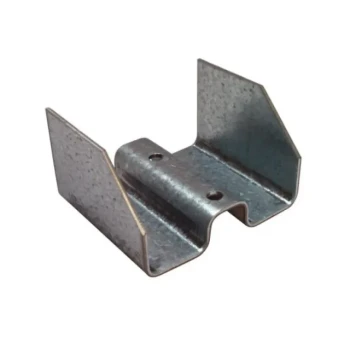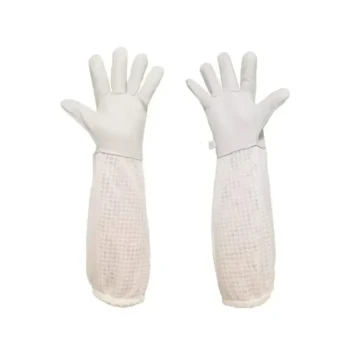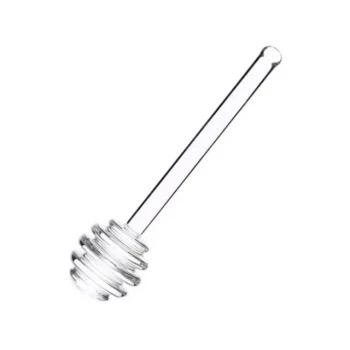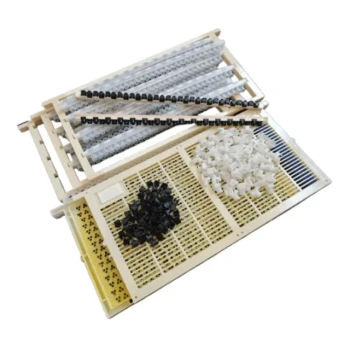At its core, propolis is a complex resinous mixture that honeybees produce by combining tree sap and other botanical sources with their own saliva and beeswax. Often called "bee glue," this sticky, greenish-brown substance is far more than an adhesive; it serves as the structural and immunological defense for the entire beehive.
Propolis is not just a building material but the hive's external immune system. Bees engineer this substance to seal, disinfect, and protect their colony, creating a powerful antimicrobial compound that humans have since adapted for medicinal use.
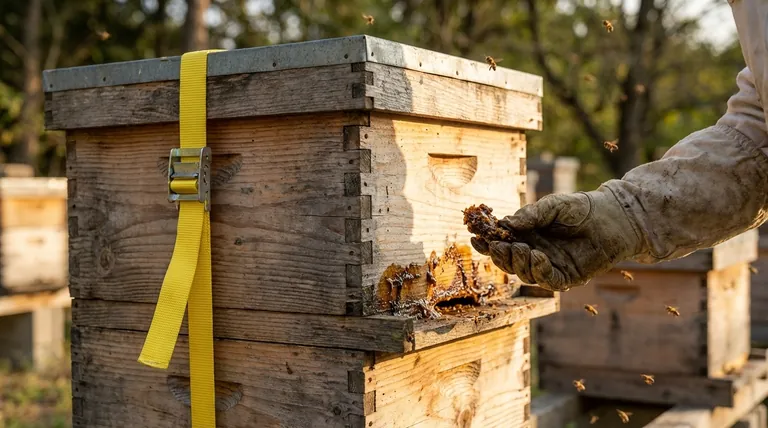
The Hive's Pharmacy: The Purpose of Propolis
Bees are masters of natural engineering, and propolis is one of their most critical innovations. Its creation and use are fundamental to the health and integrity of the colony.
From Plant Resin to Hive Sealant
The process begins with forager bees. They seek out and collect sticky resins from the buds and bark of trees like poplar, birch, willows, and conifers.
Trees produce these resins to protect themselves from fungi and insects. Bees harvest this protective substance for their own purposes.
The Master Formula
Once back at the hive, the bees mix the collected resin with their own salivary secretions and beeswax to create the final product.
The exact composition varies, but it averages around 50% resins and balsams, 30% waxes, 10% essential oils, and 5% pollen, with the remainder made up of various amino acids, vitamins, and minerals.
A Multi-Purpose Tool for the Colony
Worker bees use propolis in several ingenious ways. They use it as a sealant to coat the hive's interior and fill unwanted gaps, protecting against weather and predators.
More importantly, its powerful antimicrobial, antibacterial, and antifungal properties make it an essential disinfectant, sterilizing the hive and protecting the colony from disease. Bees even use it as an embalming agent to mummify intruders that are too large to remove.
From Hive to Harvest: How Humans Collect Propolis
Beekeepers can harvest this valuable substance without harming the colony by understanding the bees' natural tendencies.
Timing and Technique
Propolis production naturally peaks in the early fall as bees prepare to winterize their hive, making this the ideal time for collection.
The most common method involves placing a propolis trap or mat inside the hive. These are typically reusable plastic screens with small grooves or gaps.
The Collection Process
Seeing these gaps, the bees’ instinct is to seal them with propolis. Once the trap is sufficiently filled, the beekeeper removes it.
To easily separate the propolis, the entire trap is frozen. This makes the propolis brittle, allowing it to be cracked or scraped off the mat cleanly.
Understanding the Trade-offs and Considerations
While propolis is a remarkable natural product, its quality and ethical sourcing are key factors to consider.
Not All Propolis Is Equal
The chemical composition and medicinal properties of propolis can vary significantly depending on the specific plants and trees the bees visit. The local geography and flora directly influence the final product.
The Importance of a Thriving Hive
Ethical harvesting is paramount. Beekeepers should only collect propolis from strong, healthy, and thriving hives. Taking too much or harvesting from a weak colony can compromise its ability to survive.
Making the Right Choice for Your Goal
Understanding the origin and purpose of propolis allows you to use it more effectively, whether you are a beekeeper or a consumer.
- If your primary focus is beekeeping: Introduce propolis traps in the early fall to harvest the excess from your strongest hives without stressing the colony.
- If your primary focus is natural health: Seek out propolis tinctures or salves for their potent antimicrobial properties, which are excellent for minor skin irritations, sore throats, and oral health.
- If your primary focus is understanding nature: View propolis as a perfect example of how insects harness the chemical defenses of plants to create a synergistic, protective super-substance.
Ultimately, propolis stands as a testament to the sophisticated and resilient engineering found within a honeybee colony.
Summary Table:
| Aspect | Key Information |
|---|---|
| What is it? | A resinous mixture made from tree sap, beeswax, and bee secretions. |
| Primary Function | Seals the hive and provides antimicrobial, antibacterial, and antifungal protection. |
| Typical Composition | ~50% resins, ~30% waxes, ~10% essential oils, ~5% pollen. |
| Human Harvesting | Using propolis traps, typically collected in early fall from strong hives. |
Equip Your Apiary with Confidence
As a commercial beekeeper or distributor, the health of your hives is your business. Propolis is a critical component of colony defense, and understanding its role is the first step. The next is ensuring you have the right equipment for sustainable harvesting and hive management.
HONESTBEE supplies the durable, wholesale-focused beekeeping supplies and equipment that commercial apiaries and distributors rely on. From propolis traps to essential hive tools, we help you support strong, productive colonies.
Ready to strengthen your operation? Contact our team today to discuss your equipment needs and wholesale pricing.
Visual Guide
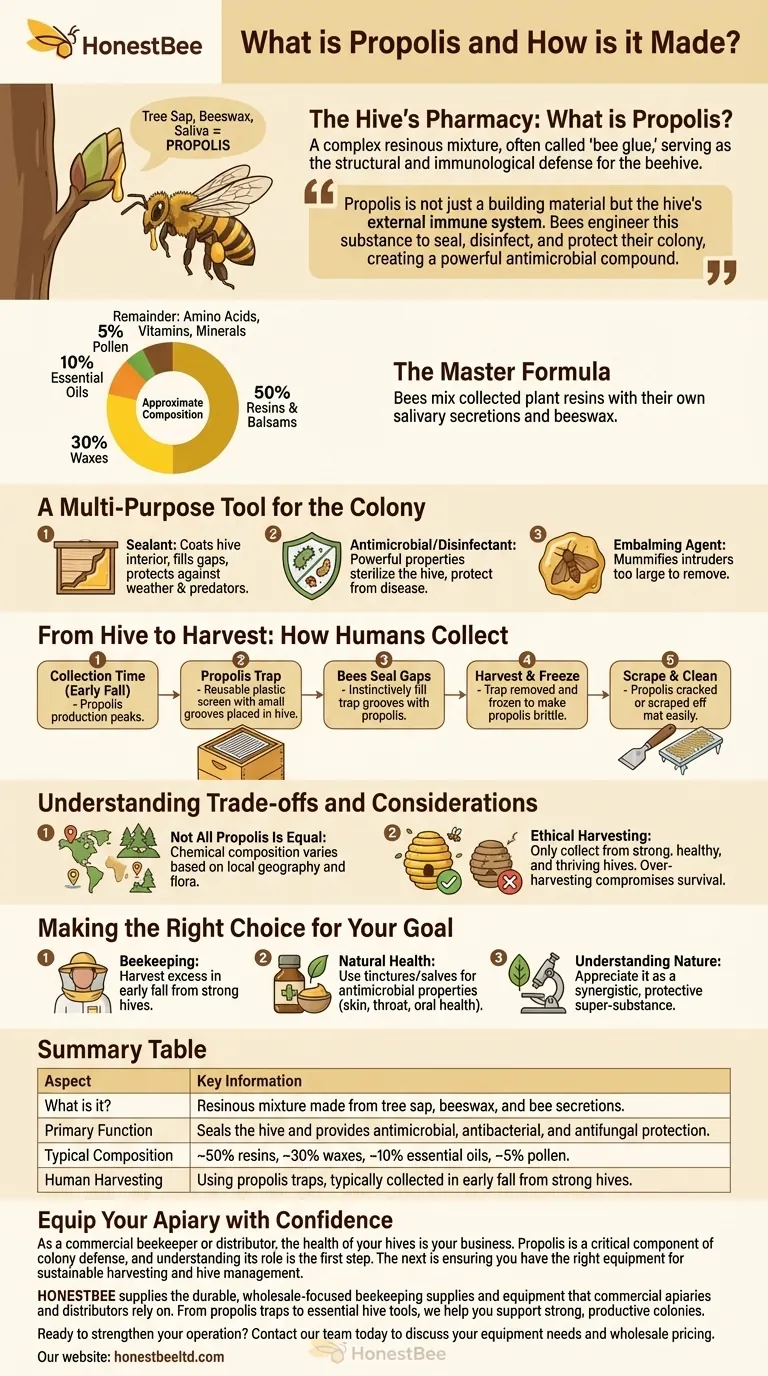
Related Products
- Professional Galvanized Hive Strap with Secure Locking Buckle for Beekeeping
- Electric Flatting and Embossing Machine with Tray for Beekeeping
- Versatile Ratchet Hive Strap with S-Hooks for Secure Fastening
- Endless Loop Ratchet Hive Strap
- Retractable Chinese Queen Rearing Grafting Tools Equipment
People Also Ask
- How should a cam buckle strap be installed for optimal performance? Master the Leverage for Maximum Tension
- What maintenance is required for hive straps? A Guide to Cam Buckle vs. Ratchet Strap Care
- What is the advantage of using cam buckle straps? Secure Your Load Fast with Simple, Safe Tensioning
- Why are hive straps important for beekeepers? Secure Your Hives Against Wind, Predators & Transport
- What are the two styles of hive straps? Choose the Right Strap for Your Hive Security





